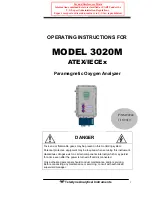
4-4
Solar Access and Interpretation of Data
Surface Orientation
Surface Orientation
The amount of energy absorbed from the sun depends on the angle and orientation of the surface
receiving the irradiation. For example, the magnetic orientation and tilt of solar panels affect the
energy collected by those panels. The difference in solar energy collected by a solar panel at
38.07
North with a 0
tilt versus a tilt of 35
is about 11%.
By default, solar access results in the SunEye are based on the following assumed configuration:
• The receiving surface (a solar panel, for example) is oriented south if you are in the northern
hemisphere, and oriented north if you are in the southern hemisphere.
• The tilt is equal to the latitude of the site location.
For example, if the latitude of the site that is being evaluated is 37, then by default the solar
access calculations performed in the SunEye are assuming a surface tilt of 37 from horizontal.
This panel tilt and azimuth can be adjusted by the user for optimizing energy production and/or
conforming to a roof structure.
The orientation used to calculate solar access can be changed via the
skyline properties
dialog.
Refer to “Capture a Skyline” on page
2-11
for more information.
Shading can have a greater effect on energy output than the tilt and orientation of a system.
Shifting a panel array in order to avoid shade or orienting panels to optimize collection during
the unshaded times of day and year is one of the most important steps in solar system design.
For more information about designing and installing a solar system, see:
http://www.sandia.gov/pv/docs/Design_and_Installation_of_PV_Systems.htm
Содержание Solmetric SunEye 210
Страница 2: ...2 ...
Страница 4: ...4 ...
Страница 16: ...1 10 Getting Started System Controls and Settings ...
Страница 80: ...4 6 Solar Access and Interpretation of Data Numerical Calculations ...
Страница 90: ...5 10 Maintenance and Troubleshooting Regulatory Compliance ...













































